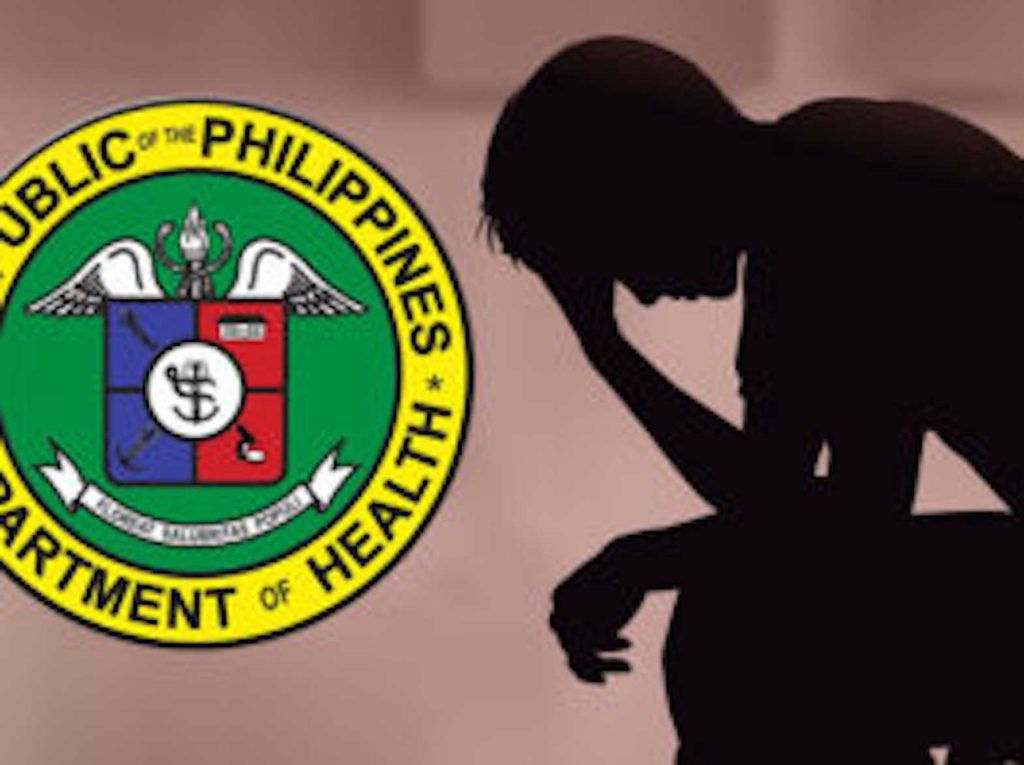Gov’t asks for Church’s help against ‘depression, self-destruction’

NCMH
Years back, Vice Ganda let the cat out of the bag and publicly admitted that, as a teenager, he was suicidal. Studies suggest that those who belong to the LGBT identity are more prone to despair following family problems, bullying, peer pressure, or social rejection.
Today, however, it’s no longer just the LGBT who are badly shaken. Due to the pandemic, our human community is at its tipping point between order and chaos, and every member is now prone to psychological and spiritual damage.
For this reason, through the Inter-Agency Task Force (IATF) for the Management of Emerging Infectious Diseases, the Duterte government seeks the help of the Catholic Church and other spiritual leaders in addressing the alarming rate of suicide.
When joker Joey de Leon insinuated in October 2017 that “depression is just made up by people; they do it to themselves,” nobody was laughing. Today, when you hear of a Covid-19 patient jumping out of a hospital building, or displaced workers selling their own kidneys to survive, or a returning OFW hanging himself, you don’t laugh. You cry.
In normal times, about 800,000 depressed people worldwide commit suicide per annum. In the pre-pandemic period, seven Filipinos t00k their own lives every single day, that is, one depressed Pinoy committing suicide every three and a half hours. And for every suicide carried out, there were a hundred more who attempted to end their dear lives.
During pandemic, multiply depression a hundred times, and you’d end up terrified with the rocketing cases of “self-destruction,” as Justice Secretary Menardo Guevarra puts it.
Every Juan and Juana de la Cruz is ruthlessly affected, and the direct causes are more than just bullying, family problems, peer pressure, or social rejection. The Covid-19 pandemic, according to IATF’s head Sec. Carlito Galvez, causes “grave anxiety and fear, depression due to the loss of employment or livelihood, loneliness arising from isolation, and lack of hope for a return to their normal lives.”
With 10 million confirmed Covid-19 cases worldwide, more than 500,000 deaths, hundreds of millions jobless, and hundreds of millions hungry, the situation is a bitter taste of a dystopian future, even as it inflicts deep psycho-emotional wounds among us and pushes our planet to the edge of a large-scale economic catastrophe or global recession.
“Depression is like wearing tinted glasses,” writes Stephen Altrogge. “Everywhere you look, things look dark. Bleak. Black. Hopeless. Helpless.”
The creeping psychosomatic condition or what psychiatry calls “persistent depressive disorder” (PDD) can lead to “inutile” attitude and spiritual emptiness, to hopelessness, and then to self-destruction.
The government admits, though indirectly, that the Catholic clergy and other spiritual leaders, and not politicians, can address health issues related to spirituality and, by extension, that priests, consecrated persons, and other spiritual leaders are by vocation counselors of the depressed soul.
In seeking the religious intervention of the Church and spiritual leaders, the government now believes that religion can do something positive that the State cannot do in order to prevent more self-destructions. The Catholic Church indeed is “not a museum for saints but a hospital for sinners,” or better, in the words of Pope Francis, “a field hospital after battle.”
Accordingly, our bishops, through the CBCP, may correspond with the government to discuss the functions of such partnership and the informational mechanism and logistics requirements. Vice versa, the National Center for Mental Health (NCMH), the agency with a crisis hotline and an endless list of Filipinos facing mental health issues, may coordinate with CBCP.
The Diocese of Kalookan has a phone-in counseling program called “Covid Hopeline” in place. Across the archipelago, there are 3,390 active Catholic parishes and 1,484 Catholic universities, colleges and schools. CBCP may utilize a huge chunk of these as counseling centers in two ways: one, online, and the other, face-to-face, ever mindful of the health protocols. The face-to-face counseling almost always leads to the Sacraments of Reconciliation and the Eucharist.
I genuinely believe we are now living through the greatest spiritual moment in history, when billions of our kind, the humankind, acknowledge they are not in control, but that GOD is.
I end with William Shakespeare’s quote, “The miserable have no other medicine, but only hope.”
Jose Mario Bautista Maximiano (facebook.com/josemario.maximiano) is the author of 24 PLUS CONTEMPORARY PEOPLE: God Writing Straight with Twists and Turns (Claretian, 2019) and MDXXI: 500 YEARS ROMAN CATHOLIC (Claretian, 2020).

